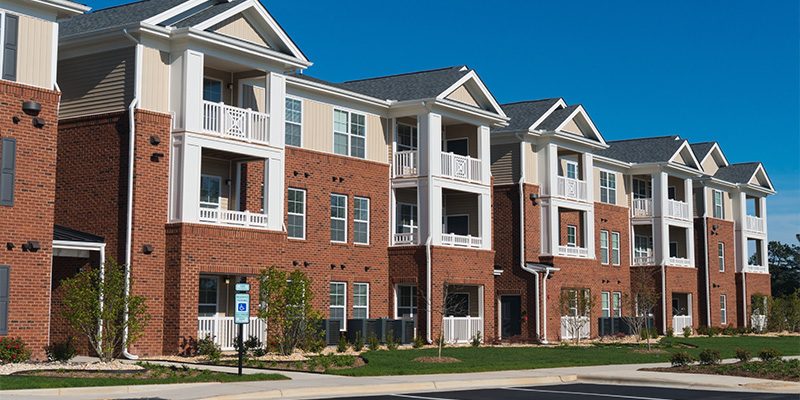This last week has seen a bombardment of legislation and orders at both the Federal and State level which have direct impact on community associations within Massachusetts.
The Regulation which most directly affects community associations and their ability to initiate and continue collection activities was issued on March 26, 2020 by the Massachusetts Attorney General as an Emergency Addendum to 940 CMR sec. 35, entitled “Unfair and Deceptive Debt Collection Practices During the State of Emergency caused by COVID-19” (“Regulation”). (Click here for a copy of the Regulation). The Regulation runs for ninety (90) days from March 26, 2020 (i.e. June 24, 2020) or when the State of Emergency is lifted, whichever shall occur first.
This update is provided presuming that the Attorney General’s office has the delegated authority to unilaterally decree that actions taken by the organization of unit owners of a condominium in compliance with G.L. c.183A can be deemed unfair and deceptive trade practices and that the Regulation is enforceable. This office is not suggesting that the Attorney General has any such authority but is recommending compliance with the Regulation unless and until the Regulation is either modified or deemed unenforceable.
MBM is working with the Community Associations Institute, The Real Estate Bar Association for Massachusetts and other firms in Massachusetts to convince the Attorney General’s office that the regulation should be amended to exclude condominium associations.
It is our position that no complaint which has the purpose of collecting any unpaid common expenses may be filed during this time period, and that any action which has already been commenced, must be suspended.
The most important points as to community associations are:
Section 35.03 (1)(a) does not allow any creditor or debt collector to “initiate, file, or threaten to file any new collection lawsuit.” Under the Regulation, a collection lawsuit is defined as any legal proceeding, including civil actions, commenced in any court for the purpose of collecting any debt owed. Section 35.03 (1)(b) does not allow any creditor or debt collector to “initiate, threaten to initiate, or act upon any legal or equitable remedy for the seizure [or] attachment ….of…property… for the payment of a debt to a creditor.”
It is our position that no complaint which has the purpose of collecting any unpaid common expenses may be filed during this time period, and that any action which has already been commenced, must be suspended. It is also our opinion that the section prohibits any communication by the association or its managers to the unit owners that threatens to send their account to legal counsel for collection or lien enforcement. It is our opinion that monthly invoices for common expense assessments that will become due in the future, sent in the normal and ordinary course of business, are not prohibited by the regulation, provided the monthly invoice is not labeled as “delinquent” or “past due” or contain language alluding to a possible collection action such as “second notice” or “last notice.”
Managers should continue to submit ledgers to association counsel in the ordinary course each month and counsel will evaluate what steps are necessary and available to protect the lien.
The Regulation does not appear to prohibit an association from taking steps to preserve the status quo during this period or to prioritize its pre-existing lien relative to the first mortgagee, if any. Neither does this Regulation prevent an association from entering into any payment plans or payment arrangements with a unit owner during the state of emergency, provided that no action violative of the Regulation was taken to secure that arrangement. The Regulation also does not appear to pertain to commercial units and it is our position, at this time, that commercial units are exempted from the prohibition.
While the Attorney General’s Regulation specifically exempts mortgage foreclosure proceedings from the list of prohibited debt collection activities, the Governor issued an Order on March 13, 2020 establishing a moratorium on mortgage foreclosures during the pendency of the state of emergency. Further, the Federal CARES Act signed into law on March 27, 2020, placed a foreclosure moratorium on all federally backed mortgage loans, which account for almost 70% of all outstanding mortgages in the United States. The CARES Act places a potential one-year moratorium on mortgage foreclosures, consequently, it is expected that mortgage holders may be more likely to pay arrearages for delinquent common expenses.
Both CAI and the Real Estate Bar Association (“REBA”) have reached out the Attorney General for an amendment to the Regulation that would exempt the enforcement of liens for unpaid condominium common expenses during the state of emergency. (Click here for a copy of the letter that REBA sent to the AG on March 31, 2020 authored by Tom Moriarty and Doug Troyer of MBM).
Be assured that during this time, MBM will continue to take all such actions as are reasonably available, and otherwise consistent with the Attorney General’s Regulations. Such actions will be designed solely to preserve the status quo and/or perfect an association’s lien relative to the first mortgagees. Such actions will be taken to ensure that after this crisis has passed, the association’s priority lien will not have been extinguished by the passage of time or by a foreclosing lender and the association will have the foundation it needs to negotiate reasonable arrangements with unit owners and first mortgagees for the eventual payment of such outstanding amounts.
Should you have any questions regarding this matter, please do not hesitate to contact us at at (781) 817-4900 or email info@mbmllc.com.

